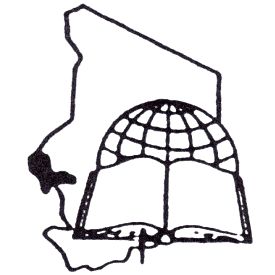David's Men at Ziklag
1 Some time earlier, David had gone to live in the town of Ziklag to escape from King Saul. While David was there, several brave warriors joined him to help fight his battles.
Warriors from the Benjamin tribe
2 Several of these warriors were from King Saul's own tribe of Benjamin. They were experts at using a bow and arrows, and they could shoot an arrow or sling a stone with either hand. 3-7 Their leaders were Ahiezer and Joash, the sons of Shemaah from Gibeah. Here is a list of those men from Benjamin: Jeziel and Pelet the sons of Azmaveth; Beracah and Jehu from Anathoth; Ishmaiah from Gibeon, who was the leader of the Thirty Warriors; Jeremiah, Jahaziel, Johanan, and Jozabad from Gederah; Eluzai, Jerimoth, Bealiah, Shemariah, and Shephatiah from Haruph; Elkanah, Isshiah, Azarel, Joezer, and Jashobeam from the Korah clan; Joelah and Zebadiah the sons of Jeroham from Gedor.
Warriors from the Gad tribe
8 Men from the tribe of Gad also joined David at his fortress in the desert and served as his warriors. They were also brave soldiers—fierce as lions and quick as gazelles. They were always prepared to fight with shields and spears. 9-13 There were eleven of them, ranked in the following order: Ezer the leader, then Obadiah, Eliab, Mishmannah, Jeremiah, Attai, Eliel, Johanan, Elzabad, Jeremiah, and Machbannai.
14 All these men were army officers; some were high-ranking officers over a thousand troops, and others were officers over a hundred troops. 15 Earlier, they had crossed the Jordan River when it flooded, and they chased out the people who lived in the valleys on each side of the river.
Warriors from the Benjamin and Judah tribes
16 One time a group of men from the tribes of Benjamin and Judah went to the fortress where David was staying. 17 David met them outside and said, “If you are coming as friends to fight on my side, then stay and join us. But if you try to turn me over to my enemies, the God our ancestors worshiped will punish you, because I have done nothing wrong.”
18 Amasai, who later became the leader of the Thirty Warriors, was one of these men who went to David. God's Spirit took control of him, and he said, “We will join you, David son of Jesse! You and your followers will always be successful, because God fights on your side.”
So David agreed to let them stay, and he even put them in charge of his soldiers who raided enemy villages.
Warriors from the Manasseh tribe
19 Some of the warriors who joined David were from the tribe of Manasseh. They had earlier gone with David when he agreed to fight on the side of the Philistines against King Saul. But as soon as the Philistine rulers realized that David might turn against them and rejoin Saul, they sent David away to the town of Ziklag. 20 That's when the following men from Manasseh joined him: Adnah, Jozabad, Jediael, Michael, Jozabad, Elihu, and Zillethai. They had all been commanders in Saul's army 21 and brave soldiers, and so David made them officers in his army. They fought on his side when enemy troops attacked.
22 Day after day, new men came to join David, and soon he had a large, powerful army.
David's Men at Hebron
23-37 The kingdom of Israel had been taken away from Saul, and it now belonged to David. He was ruling from Hebron, and thousands of well-trained soldiers from each tribe went there to crown David king of all Israel, just as the Lord had promised. These soldiers, who were always prepared for battle, included: 6,800 from Judah, who were armed with shields and spears; 7,100 from Simeon; 4,600 from Levi, including Jehoiada, who was a leader from Aaron's descendants, and his 3,700 men, as well as Zadok, who was a brave soldier, and 22 of his relatives, who were also officers; 3,000 from Benjamin, because this was Saul's own tribe and most of the men had remained loyal to him; 20,800 from Ephraim, who were not only brave, but also famous in their clans; 18,000 from West Manasseh, who had been chosen to help make David king; 200 leaders from Issachar, along with troops under their command—these leaders knew the right time to do what needed to be done; 50,000 from Zebulun, who were not only loyal, but also trained to use any weapon; 1,000 officers from Naphtali and 37,000 soldiers armed with shields and spears; 28,600 from Dan; 40,000 from Asher; and 120,000 from the tribes of Reuben, Gad, and East Manasseh, who were armed with all kinds of weapons.
38 All of these soldiers voluntarily came to Hebron because they wanted David to become king of Israel. In fact, everyone in Israel wanted the same thing. 39 The soldiers stayed in Hebron three days, eating and drinking what their relatives had prepared for them. 40 Other Israelites from as far away as the territories of Issachar, Zebulun, and Naphtali brought cattle and sheep to slaughter for food. They also brought donkeys, camels, mules, and oxen that were loaded down with flour, dried figs and raisins, wine, and olive oil.
Everyone in Israel was very happy.
Guerriers qui s’attachèrent à David pendant la vie de Saül
V. 1-22: cf. (1 S 27; 29; 30.) 1 Th 1:7. Ps 18:47, Ps 48.1 Voici ceux qui se rendirent auprès de David à Tsiklag, lorsqu’il était encore éloigné de la présence de Saül, fils de Kis. Ils faisaient partie des vaillants hommes qui lui prêtèrent leur secours pendant la guerre. 2 C’étaient des archers, lançant des pierres de la main droite et de la main gauche, et tirant des flèches avec leur arc: ils étaient de Benjamin, du nombre des frères de Saül. 3 Le chef Achiézer et Joas, fils de Schemaa, de Guibea; Jeziel, et Péleth, fils d’Azmaveth; Beraca; Jéhu, d’Anathoth; 4 Jischmaeja, de Gabaon, vaillant parmi les trente et chef des trente; Jérémie; Jachaziel; Jochanan; Jozabad, de Guedéra; 5 Éluzaï; Jerimoth; Bealia; Schemaria; Schephathia, de Haroph; 6 Elkana, Jischija, Azareel, Joézer et Jaschobeam, Koréites; 7 Joéla et Zebadia, fils de Jerocham, de Guedor. 8 Parmi les Gadites, des hommes vaillants partirent pour se rendre auprès de David dans la forteresse du désert, des soldats exercés à la guerre, armés du bouclier et de la lance, semblables à des lions, et aussi prompts que des gazelles sur les montagnes. 9 Ézer, le chef; Abdias, le second; Éliab, le troisième; 10 Mischmanna, le quatrième; Jérémie, le cinquième; 11 Attaï, le sixième; Éliel, le septième; 12 Jochanan, le huitième; Elzabad, le neuvième; 13 Jérémie, le dixième; Macbannaï, le onzième. 14 C’étaient des fils de Gad, chefs de l’armée; un seul, le plus petit, pouvait s’attaquer à cent hommes, et le plus grand à mille. 15 Voilà ceux qui passèrent le Jourdain au premier mois, lorsqu’il débordait sur toutes ses rives, et qui mirent en fuite tous les habitants des vallées, à l’orient et à l’occident. 16 Il y eut aussi des fils de Benjamin et de Juda qui se rendirent auprès de David dans la forteresse. 17 David sortit au-devant d’eux, et leur adressa la parole, en disant: Si vous venez à moi dans de bonnes intentions pour me secourir, mon cœur s’unira à vous; mais si c’est pour me tromper au profit de mes ennemis, quand je ne commets aucune violence, que le Dieu de nos pères le voie et qu’il fasse justice! 18 Amasaï, l’un des principaux officiers, fut revêtu de l’esprit, et dit: Nous sommes à toi, David, et avec toi, fils d’Isaï! Paix, paix à toi, et paix à ceux qui te secourent, car ton Dieu t’a secouru! Et David les accueillit, et les plaça parmi les chefs de la troupe. 19 Des hommes de Manassé se joignirent à David, lorsqu’il alla faire la guerre à Saül avec les Philistins. Mais ils ne furent pas en aide aux Philistins; car, après s’être consultés, les princes des Philistins renvoyèrent David, en disant: Il passerait du côté de son maître Saül, au péril de nos têtes. 20 Quand il retourna à Tsiklag, voici ceux de Manassé qui se joignirent à lui: Adnach, Jozabad, Jediaël, Micaël, Jozabad, Élihu et Tsilthaï, chefs des milliers de Manassé. 21 Ils prêtèrent leur secours à David contre la troupe (des pillards Amalécites), car ils étaient tous de vaillants hommes, et ils furent chefs dans l’armée. 22 Et de jour en jour des gens arrivaient auprès de David pour le secourir, jusqu’à ce qu’il eût un grand camp, comme un camp de Dieu.
Guerriers des douze tribus qui se rendirent à Hébron pour établir David roi
V. 23-40: cf. (1 Ch 11. 2 S 5:1-5.)23 Voici le nombre des hommes armés pour la guerre qui se rendirent auprès de David à Hébron, afin de lui transférer la royauté de Saül, selon l’ordre de l’Éternel. 24 Fils de Juda, portant le bouclier et la lance, six mille huit cents, armés pour la guerre. 25 Des fils de Siméon, hommes vaillants à la guerre, sept mille cent. 26 Des fils de Lévi, quatre mille six cents; 27 et Jehojada, prince d’Aaron, et avec lui trois mille sept cents; 28 et Tsadok, vaillant jeune homme, et la maison de son père, vingt-deux chefs. 29 Des fils de Benjamin, frères de Saül, trois mille; car jusqu’alors la plus grande partie d’entre eux étaient restés fidèles à la maison de Saül. 30 Des fils d’Éphraïm, vingt mille huit cents, hommes vaillants, gens de renom, d’après les maisons de leurs pères. 31 De la demi-tribu de Manassé, dix-huit mille, qui furent nominativement désignés pour aller établir roi David. 32 Des fils d’Issacar, ayant l’intelligence des temps pour savoir ce que devait faire Israël, deux cents chefs, et tous leurs frères sous leurs ordres. 33 De Zabulon, cinquante mille, en état d’aller à l’armée, munis pour le combat de toutes les armes de guerre, et prêts à livrer bataille d’un cœur résolu. 34 De Nephthali, mille chefs, et avec eux trente-sept mille, portant le bouclier et la lance. 35 Des Danites, armés pour la guerre, vingt-huit mille six cents. 36 D’Aser, en état d’aller à l’armée et prêts à combattre: quarante mille. 37 Et de l’autre côté du Jourdain, des Rubénites, des Gadites, et de la demi-tribu de Manassé, avec toutes les armes de guerre, cent vingt mille. 38 Tous ces hommes, gens de guerre, prêts à combattre, arrivèrent à Hébron en sincérité de cœur pour établir David roi sur tout Israël. Et tout le reste d’Israël était également unanime pour faire régner David. 39 Ils furent là trois jours avec David, mangeant et buvant, car leurs frères leur avaient préparé des vivres. 40 Et même ceux qui habitaient près d’eux jusqu’à Issacar, à Zabulon et à Nephthali, apportaient des aliments sur des ânes, sur des chameaux, sur des mulets et sur des bœufs, des mets de farine, des masses de figues sèches et de raisins secs, du vin, de l’huile, des bœufs et des brebis en abondance, car Israël était dans la joie.

